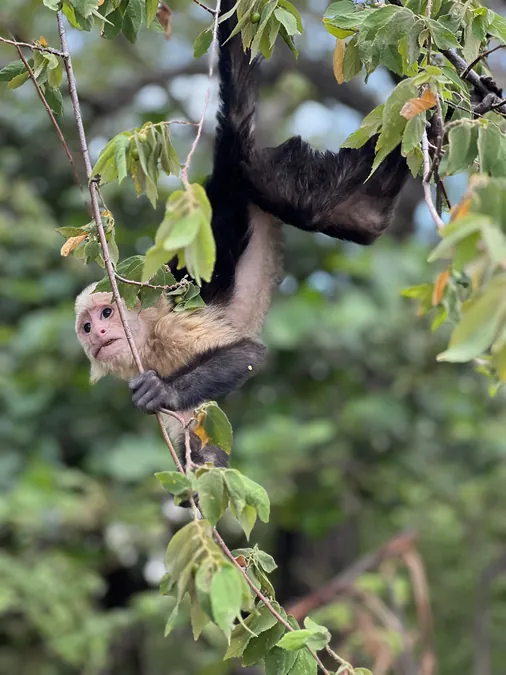
Alarming Discovery: Warming Temperatures Undermine Immune Function in Wild Monkeys
2024-11-29
Author: William
Introduction
In a groundbreaking study from the University of Michigan, researchers have uncovered a startling correlation between rising temperatures and the immune performance of wild capuchin monkeys in Costa Rica. The research team, led by anthropology doctoral student Jordan Lucore, reveals that elevated temperatures of just 86 degrees Fahrenheit are causing a decline in immunity, particularly among younger monkeys who are most vulnerable to heat.
Research Findings
Published in the esteemed journal Science Advances, this research elicits significant concern regarding the effects of climate change on wildlife. While mammals have the ability to regulate their internal body temperature, Lucore's findings suggest that even slight increases in temperature can have unexpected repercussions on their immune systems. "Contrary to what we might assume about endothermic animals, these results indicate that their immune defenses can falter at lower temperatures than previously anticipated," Lucore states.
Study Focus and Methodology
The study focused on a population of white-faced capuchins inhabiting the Taboga forest reserve — a hotspot for biodiversity. Over the years, the Capuchinos de Taboga Research Project, led by Lucore and esteemed faculty members from both the University of Michigan and Emory University, has aimed to explore the cognition, endocrinology, and behavior of this resilient species. Capuchins, known for their adaptability to various climates, are now showing signs of vulnerability, raising alarming questions about their future resilience amid global warming.
One innovative aspect of this study is the methodology used to assess immune function. Rather than invasive blood draws, the researchers measured a biomarker called neopterin found in urine. This non-invasive approach allowed for sensitive monitoring without stressing the animals. By employing a "clean catch" technique, Lucore and his team carefully tracked the monkeys until they urinated, collecting samples while ensuring minimal disturbance to their natural behavior.
Results and Impact
The results were striking: after just two weeks of exposure to higher temperatures, a marked decline in the monkeys’ immune performance was evident. The most alarming trend was that younger individuals experienced the most significant immune disruption, crucial since their adaptive immune systems are still developing. In many animal species, the adaptive immune system is essential for recognizing specific pathogens. If the generalized immune system of young monkeys weakens, their long-term health and reproductive success hang in the balance.
Broader Implications
While the immediate health effects of this immune decline are still being studied, Lucore emphasizes the potential long-term repercussions for wildlife populations: "Our findings could indicate a worrying trend for future generations of these monkeys. We need more extended studies that trace these effects over time to understand the full impact."
The implications of this research extend beyond monkeys. Lucore warns that climate change's far-reaching effects will touch every corner of the planet, impacting the fundamental biological systems necessary for survival across numerous species. "As climate change unfolds, we have to recognize its potential to disrupt the delicate balance of life as we know it," he warns.
Conclusion
The study not only highlights the vulnerability of capuchin monkeys but serves as a critical wake-up call about the broader implications of climate change on wildlife and ecosystems. As the earth warms, the battle for survival becomes increasingly complex — and the hidden consequences of rising temperatures may be more profound than we ever imagined. How many other species face similar threats lurking just below the surface? This research is a stark reminder that our planet is changing, and many animals may not be able to adapt fast enough.









 Brasil (PT)
Brasil (PT)
 Canada (EN)
Canada (EN)
 Chile (ES)
Chile (ES)
 España (ES)
España (ES)
 France (FR)
France (FR)
 Hong Kong (EN)
Hong Kong (EN)
 Italia (IT)
Italia (IT)
 日本 (JA)
日本 (JA)
 Magyarország (HU)
Magyarország (HU)
 Norge (NO)
Norge (NO)
 Polska (PL)
Polska (PL)
 Schweiz (DE)
Schweiz (DE)
 Singapore (EN)
Singapore (EN)
 Sverige (SV)
Sverige (SV)
 Suomi (FI)
Suomi (FI)
 Türkiye (TR)
Türkiye (TR)